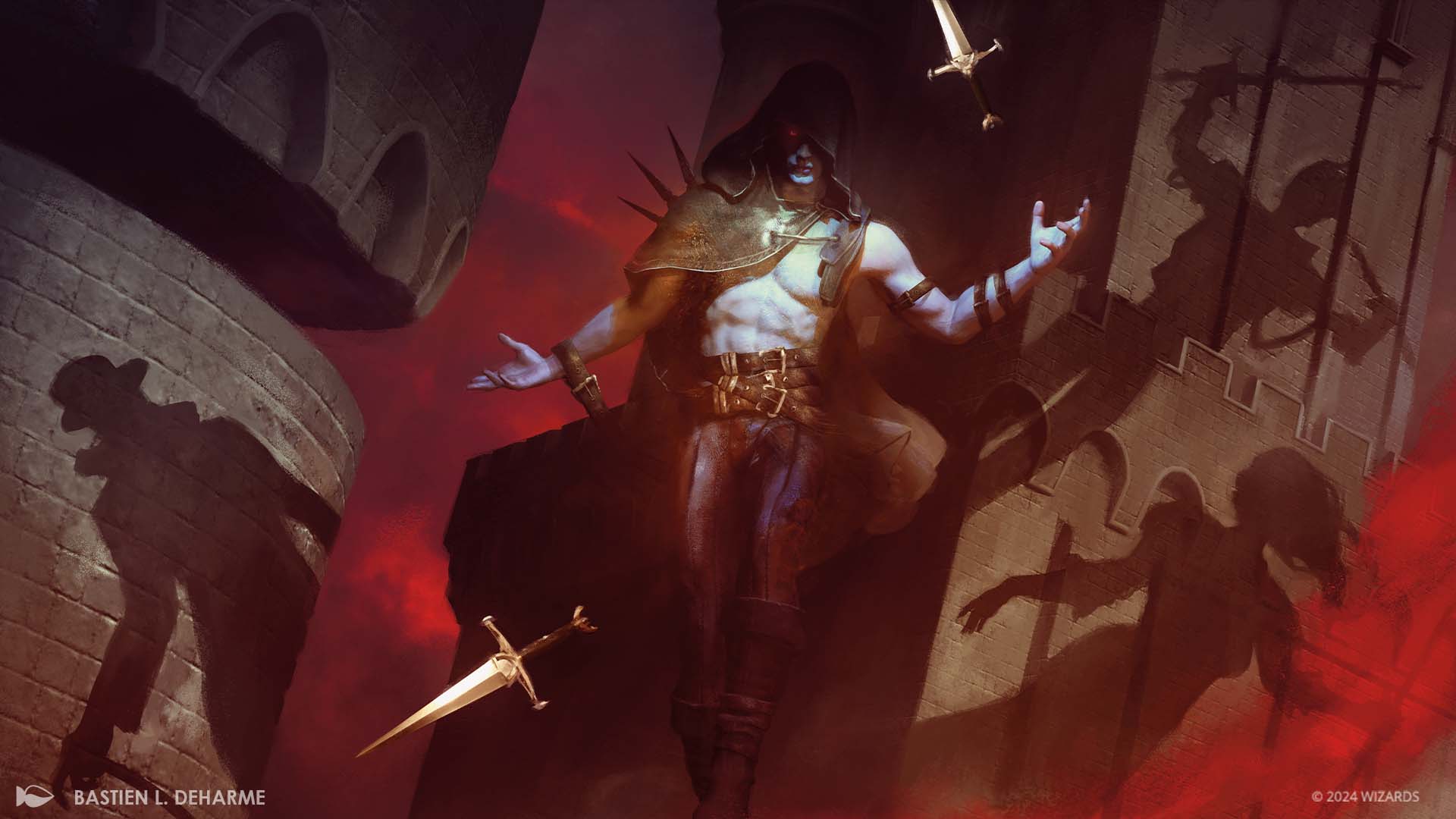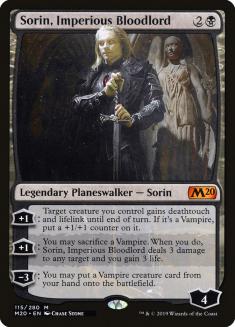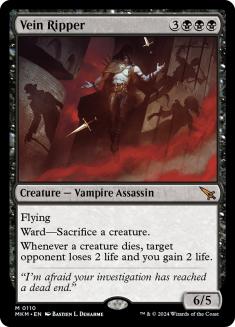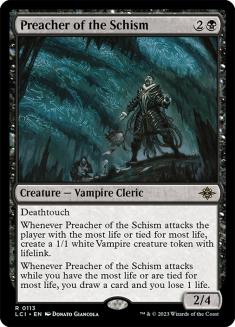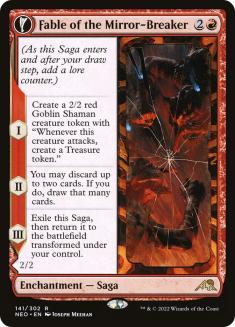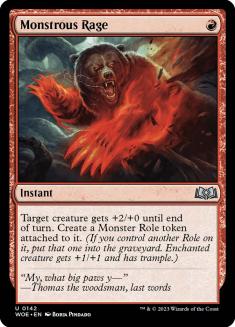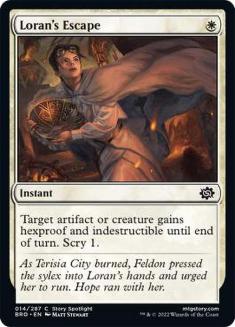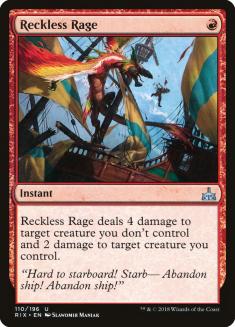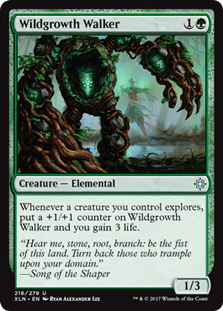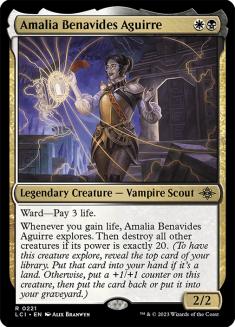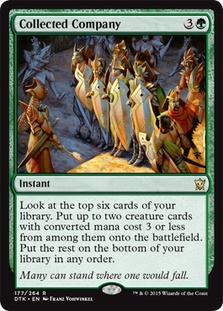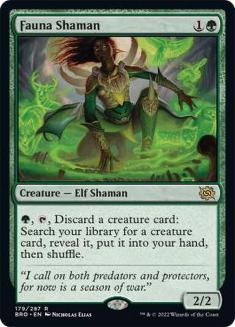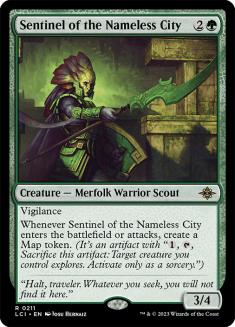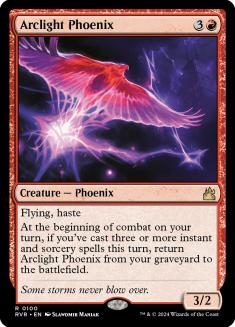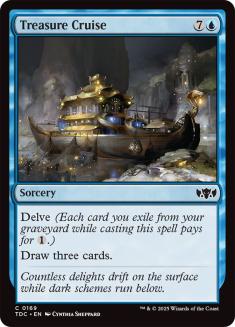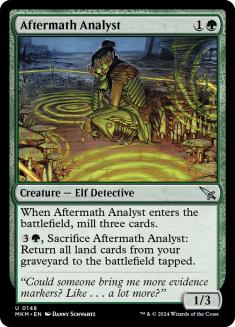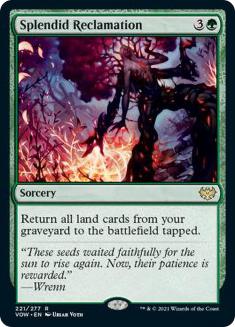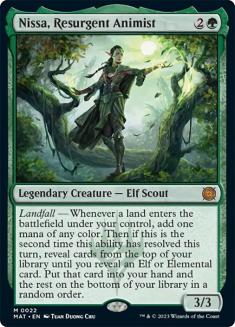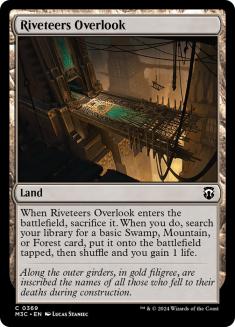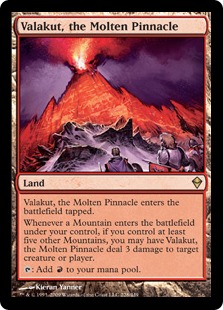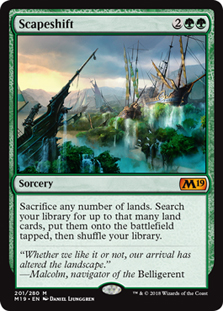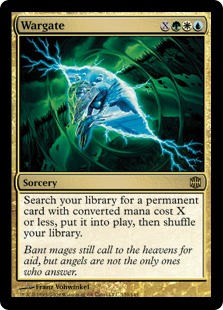After a long stay in the Windy City, I’ve just about recovered from Pro Tour Murders at Karlov Manor and the rest of MagicCon Chicago. My weekend was a failure, but I got to watch many friends win and lose matches with a lot on the line, which can be just as exciting and exhausting as playing yourself.
The Champ Is Here (Again)
Seth Manfield winning a high-stakes Magic event is the least surprising outcome imaginable by now. Already a World Champion and Pro Tour Champion, Manfield now has to find even more room in an overflowing trophy cabinet.
His deck choice will raise more eyebrows. Team ChannelFireball showed up with unconventional decks for each of the last few Pro Tours with mixed results, but they hit a home run in Chicago. The normal Rakdos Midrange deck that has been an easy default for many Pioneer players for the past few seasons put up horrible numbers, but Thoughtseize and Fatal Push are as strong as ever – you just have to figure out the right home.
Creatures (14)
- 2 Dusk Legion Zealot
- 4 Bloodtithe Harvester
- 1 Sheoldred, the Apocalypse
- 3 Preacher of the Schism
- 4 Vein Ripper
Planeswalkers (4)
Lands (25)
Spells (17)

Sorin, Imperious Bloodlord is an outrageously powerful card that takes a massive commitment. Sorin’s price spikes every time we visit a plane that could have strong new Vampires for it to sneak in, and Murders at Karlov Manor finally delivered. There are cheaper Vampires that are barely worth the effort, and you can go even bigger with Ghalta and Mavren or Lord Xander, the Collector, but these are dead draws that push you towards being all-in on this gimmick. Vein Ripper is just right: a terrifying threat you’re happy to throw down on Turn 3, yet is also realistic to cast in longer games. It only takes a few turns sitting across from Vein Ripper to see how hard – and how necessary! – it is to remove.
You want other ways to make the most of Sorin’s talents when you don’t have this one-two punch. Preacher of the Schism already makes an impressive case for that much-coveted three-drop slot in Rakdos, but it’s a vital part of this Vampire theme. Preacher itself is a fine attacker to boost with Sorin’s first +1 ability, and the Vampire tokens it creates are perfect fodder for the other.
The big problem with Sorin in the past was having to run otherwise unimpressive Vampires to give it enough support. There’s still some of that – you aren’t putting Dusk Legion Zealot in your Pioneer deck voluntarily – but Bloodtithe Harvester and Preacher fill most of the gap.
Then there’s Fable of the Mirror-Breaker. I could go into detail about the importance of rummaging in a deck with these conditional combo elements or the flashy finish of copying your Vein Ripper with Reflection of Kiki-Jiki – or I could just point to the scoreboard. Fable has won all four Pro Tours since that system returned last year. It let Nathan Steuer hoist the World Championship trophy with Grixis in a sea of Esper decks. It won the New Capenna Championship, and probably would have won the Neon Dynasty Championship had anyone realized how good it was then!
A Heroic Finalist
Creatures (16)
Lands (18)
Spells (26)

The final boss in Manfield’s way was the main character of this era of the Pro Tour. Player of the Year Simon Nielsen only just made it to the tournament on Day 1 after a risky decision to bike through the Chicago snow, but finished the day 7-1 and ran that up into a staggering fourth consecutive Pro Tour Top 8 on Saturday – a Hall of Fame-worthy career in the space of a single year!
His weapon of choice was Boros Heroic, a familiar deck on the aggro-combo corner of Pioneer but one that flew under the radar for this tournament until back-to-back wins in Pioneer Challenges on Magic Online (MTGO) the previous week. Heroic can hold its own against Izzet Phoenix and Azorius Control, goldfishes faster than Lotus Field or other linear decks, and has draws that can overpower anyone. The main thorn in its side is Rakdos Midrange, but if you think that Rakdos is terrible and that the better players will realize that, Heroic looks like a great bet. All you have to do is win early to stay out of the Blood Crypt – and Nielsen has won more than anyone else lately.
The Amalia Anomaly
Creatures (26)
- 3 Fauna Shaman
- 4 Wildgrowth Walker
- 2 Selfless Savior
- 1 Skyclave Apparition
- 4 Prosperous Innkeeper
- 3 Lunarch Veteran
- 1 Extraction Specialist
- 1 Haywire Mite
- 2 Cenote Scout
- 4 Amalia Benavides Aguirre
- 1 Sentinel of the Nameless City
Lands (22)
Spells (12)

This Top 8 was also notable for a more bizarre reason. Nielsen won a lot of matches to get to Sunday, but he also played a lot of games on Sunday, besting fellow Dane Christoffer Larsen and his Abzan Amalia deck in a seven-game set. Boros Heroic has Reckless Rage as an on-theme removal spell, but also boasts a unique and unintuitive form of interaction against the Amalia combo. The Wildgrowth Walker + Amalia Benavides Aguirre loop breaks when Amalia reaches twenty power and destroys all other creatures, but would otherwise continue indefinitely. Making your opponent’s Wildgrowth Walker indestructible or pumping Amalia with cards like Monstrous Rage to skip the twenty-power check closes the loop and draws the game. With Amalia’s focus on that combo and Heroic’s easy access to these effects, it’s a relief we ‘only’ saw seven games!
Abzan Amalia was another surprising success story in Chicago. After its messy debut in the last round of Regional Championships, Amalia’s place in the format was unclear. It struggled against Azorius Control the way Boros Heroic did against Rakdos Midrange, yet was very impressive against everything else. Players like me who registered Amalia placed a bet that Azorius would not be as popular as advertised or would underperform. In the end, Azorius has a rough weekend, so Amalia had a good one – unless, like me, you picked up an unintentional draw early and were justly punished by running into elite control players like Yuta Takahashi and Shota Yasooka in the draw bracket…
Amalia remains an enigma – there are so many ways to build the deck and so many options for each of those approaches that the temporary success or failure of one list doesn’t tell you much about the archetype’s potential. Take Collected Company, a staple in creature combo decks for almost a decade but a weak link here. I opted to boost my average Company output and strengthen my fair game by loading up on Sentinel of the Nameless City, which can also be a source of explore triggers for Wildgrowth Walker; others shaved or removed Company entirely in favour of other card selection like Fauna Shaman or Knight-Errant of Eos. As we circle around to yet another Pioneer RCQ season, I’m keen to keep working on Amalia and trying to unlock its potential.
Rise Like a Phoenix
After all that, the main headline in Pioneer is still the same: Izzet Phoenix is the best deck and Treasure Cruise is broken. Everyone had Phoenix as the most popular deck for Chicago, but that usually limits its overall win rate as less skilled players take up more of its metagame share and everyone else comes prepared. Izzet Phoenix defied that convention – it was not just the most popular deck but the most successful mainstream deck, with World Champion Jean-Emmanuel Depraz riding the momentum from that big win and posting a 9-1 record in Pioneer.
Whenever this column checks in on Pioneer, I do my best to highlight the most interesting new developments but usually have to admit that the easiest way to win your next tournament is to return to Phoenix. Pioneer Banned and Restricted announcements have explicitly and repeatedly given Treasure Cruise a kind of diplomatic immunity, but I don’t know if that’s sustainable for much longer.
Pioneer and the Pro Tour did each other proud this weekend. I just hope the basic story is different by the time the next Pioneer Pro Tour rolls around.
Setting New Standards
How about Standard? The Standard RCQ season is in full flow and the next set of Regional Championships are Standard, but without the regular major events that offered a bellwether for Standard in the past. The Standard $75K in Chicago was the closest thing to a Grand Prix in this system and had the highest stakes for an open Standard event in a long time.
The story there is proof that reality can be stranger than fiction.
For most deckbuilders, the idea of a 68-card Slogurk, the Overslime deck would break their brain beyond repair. For deckbuilder extraordinaire Rei Zhang (cftsoc), it’s just another day at the office. Many creative thinkers have wacky ideas plastered all over social media, but Zhang is out here dominating competitive events online and offline with their concoctions.
Splendid Reclamation looks like it should be broken, but hasn’t delivered on that promise – until now. Aftermath Analyst is a self-enabling version of that effect that gets to link up with its inspiration thanks to Standard’s longer rotation. Together, they give you the redundancy you want for a dedicated Reclamation deck – but how do you make the most of that in a format without fetchlands?
The common lands from Streets of New Capenna offer an unlikely answer. These are almost always worse than any normal dual lands, including the new surveil lands – unless you care a lot about landfall triggers and having lands in your graveyard. If you can afford these lands effectively entering tapped, it becomes trivial to fill your graveyard with lands and get another set of rewards when you bring them all back. One life is a rounding error, but one life per land when each land will trigger several times adds up quickly and gives you more time to use all the mana you amass this way.
Nissa, Resurgent Animist shines when you can reliably double up on that mana rebate and get its additional bonus. In this list, it always uncovers another copy of itself to protect that part of your engine or the all-important Aftermath Analyst (also an Elf!). When everything is in place, Nissa opens up a true loop: buying back a dozen lands with Analyst generates enough mana to buy back that Analyst with Takenuma, loop that Takenuma and Otawara with Slogurk, and repeat the whole cycle indefinitely.
How do you make room for all this? Just add more cards! You want a lot of these common fetchlands, and you can expect to fetch every basic land in your deck in most games, so you want a ton of those too – alongside the usual batch of legendary lands for Slogurk. Once you fit all that in the usual 60 cards, you barely have room for the spells you want and are prone to flooding. Adding more spells helps to rebalance that ratio and gives you the specific tools you need.
This principle isn’t wholly new – Scapeshift decks in smaller formats did this back when they had to pair their Valakuts with basic Mountains to make their namesake a one-card combo – but its return here is an exclamation point on a deck that is innovative and impressive throughout.
Sound and Fury
There was something for everyone in Chicago, with all of those somethings crammed together in one giant hall. Finding your event or your friends was hard enough, and even the event staff didn’t seem to know what was meant to happen at a given place or time. This is inevitable to an extent, and having a sold-out convention with so many people wanting to play Magic is a great problem to have – as long as you handle that responsibly.
Their biggest miss in that regard was the Standard $75K taking place right next to the main stage that featured the Game Knights live show and other panels, which made no attempt to contain the noise coming from the area. Several players complained online about being able to concentrate, including one who self-identified as autistic.
I found it unbearably loud and disruptive walking around the hall even though I don’t share these audio processing issues, didn’t have to concentrate on a game of Magic, and was able to mask some of the noise with earbuds. The same problem was present to a lesser extent at the World Championships in Vegas, where I was trying to compete while drowning out the shrieks from across the room. The next Pro Tour in Seattle will be refreshingly quiet due to the lack of an accompanying MagicCon, but this issue needs to be addressed for the next Magic extravaganza in Amsterdam.
The compressed calendar of Organized Play this year means there’s barely any time to reflect or relax before the next major event but being so immersed in high-level Magic this weekend has left me raring to go. I hope I’ll be reporting on my own success again next time!

